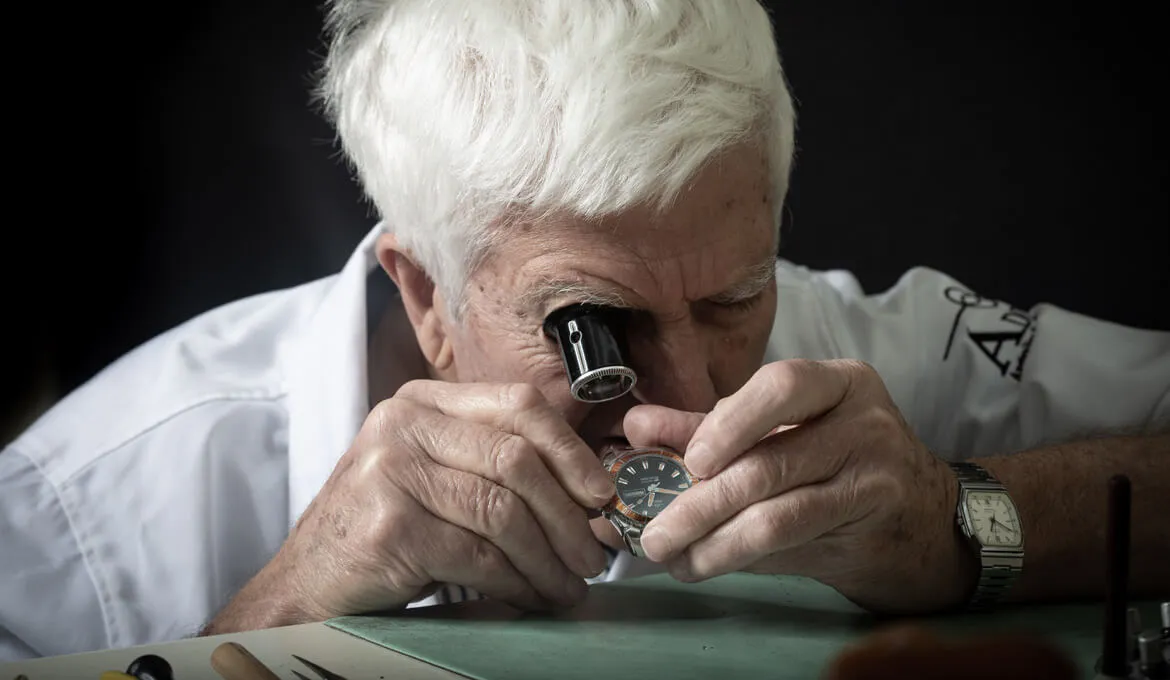Despite the warnings that classic mechanical watches are soon outdated by the rise of the functional yet non-descript smartwatch, the humble wristwatch is still proving to be just as popular, if not more so than ever. But what exactly does it take for someone to become a qualified watchmaker?
What Attributes Does a Watchmaker Need?
This isn’t for some who wants to learn how to fix a watch…this is a dedicated craft of building a watch from the ground up..
Some attributes will make you more suited to becoming a watchmaker and these include;
- A passion for timepieces and a love of watches and clocks
- Exceptional hand to eye coordination
- A dedication to the art to see through the lengthy training
- Strong analytical skills
- The ability to afford the training
If a career in watchmaking sounds like something for you, it is worth knowing upfront that it takes countless hours to train as a watchmaker and a pretty sizable financial investment to undergo the training.
Watchmaker Training
Training to be a watchmaker isn’t something you can pick up from watching tutorials online. While this can afford you a glimpse into the work, dedication, and training watchmakers undergo, it is simply that, a glimpse.
What is the best way to learn the art of watchmaking?
There are two main ways to become a watchmaker, either as an apprentice or watchmaking school.
Apprenticeship
The main issue with a watchmaking apprenticeship is to find a watchmaker willing to take you on. Working side by side for one-on-one training with an expert watchmaker is the best and quickest way to learn your new craft and can offer you many rewards if you can secure this option.
This type of training can knock hours off your training and afford you a more personalized and dedicated way of developing your skills and teaching you everything you need to know at a pace that suits you only, not a whole classroom full of students.
However, as unique as this experience would be, apprenticeships aren’t usually paid, meaning you will need to find a way to support yourself during this time. Having a regular job alongside the many hours you would be expected to work alongside a skilled watchmaker can prove too much for many people, especially when you factor in the cost of your training and qualifications.
Another drawback is that many experienced watchmakers have their own way of making watches and methods they prefer that work for them. In some cases, they may not be up to date or neglect up-to-date industry standards and more modern ways of watchmaking. While you may learn some phenomenal techniques and methods, the education you receive may not be as all-inclusive as training at a watchmaking school would be. Choosing this option means you need to display the equivalent of “street smarts,” so to speak, as the emphasis is more on the doing rather than the knowing.
Watchmaking School
The only internationally recognized provider of courses within the watchmaking industry that deals with Swiss watches are WOSTEP.
WOSTEP, or the Watchmakers of Switzerland Training and Education Program, is the sole internationally recognized training provider in the Swiss watch industry. It was founded in 1966 and had associate schools worldwide, but just two in the United States.
The North American Institute of Swiss Watchmaking in Fort Worth, Texas, and The Nicolas G. Hayek Watchmaking School in Miami provide the 3,000-hour WOSTEP certification in two or three years. They can be challenging to get into, each only taking a trickle of new applicants each year. Still, the attraction is the ability to work practically anywhere in the world.
An alternative yet highly regarded course is the Swiss American Watchmakers in Training Alliance (SAWTA) program, which several schools around the country offer.
The Lititz Watch Technicum in Pennsylvania and the Watch Technology Institute at North Seattle Community College are two popular training campuses whose programs were set up by Rolex to address the shortfall in skilled watchmakers to work on their pieces. All SAWTA schools are funded by Rolex and conform to their own standardized curriculum.
It is not affordable to attend a watchmaking school. When you consider tuition, watchmaking tools, the cost of living, rent, food, transportation, and so on, you’ll realize that watchmaking school isn’t cheap. You should also keep in mind that you may require part-time work to cover all of your expenses.
The duration of a watchmaking school might vary. The average time is 2-4 years.
Watchmaking school will teach you roughly 60% of the fundamentals you’ll need to know as a watchmaker. For the remaining 35% of what watchmaking school does not teach you, you will need another 5-10 years of on-the-job training.
In addition, if you live in the United States, you can take 5-day Watchmaking Courses with AWCI (American Watchmakers Clockmakers Institute) in Harrison, OH. This is a fantastic option for getting up-to-date watchmaking instruction in micro-doses.


